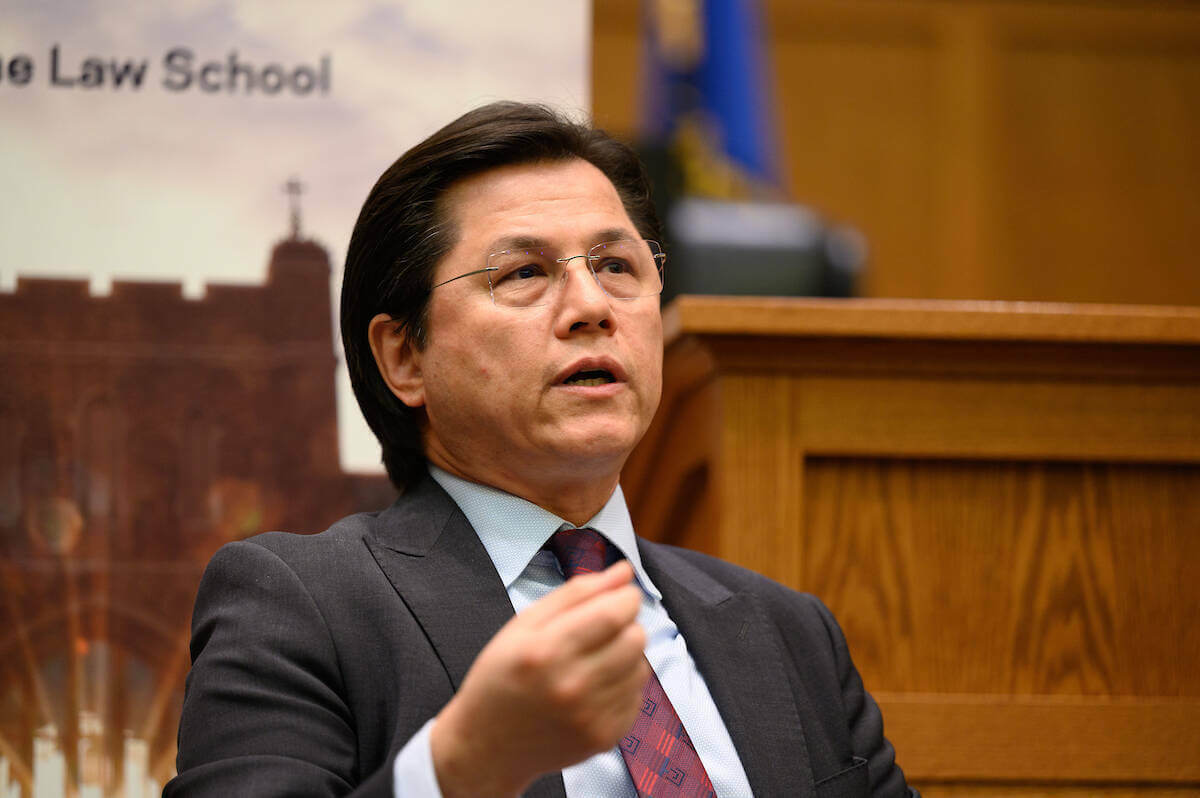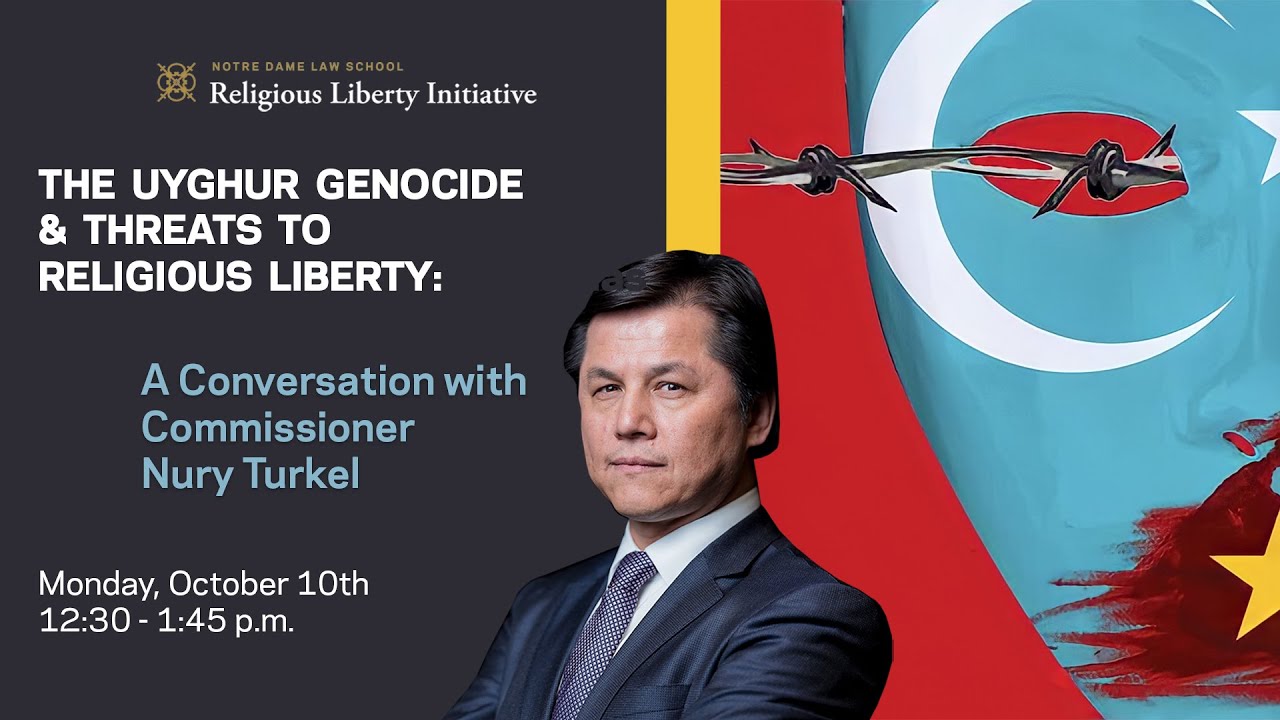Nury Turkel speaks up for the religious freedom of Uyghurs facing genocide in China for their Muslim faith
October 11, 2022
China has imprisoned more than one million Uyghurs since 2017 and subjected many others to surveillance, religious restrictions, family separations, forced labor and sterilization.
The Uyghurs are a mostly Muslim, Turkic-speaking ethnic group who live in the northwest region of Xinjiang, an autonomous region of China. Human rights observers consider the prisons to be concentration camps and the Chinese action a form of genocide.
Nury Turkel, a Uyghur American attorney and chair of the U.S. Commission on International Religious Freedom, works to educate the public about what is happening to the Uyghurs.
“I owe it to my people, I owe it to myself, I owe it to the world to tell the Uyghurs’ story, because I know storytelling can be very powerful,” said Turkel, who spoke October 10 at Notre Dame Law School. The event, “The Uyghur Genocide and Threats to Religious Liberty,” was a conversation between Turkel and Stephanie Barclay, an associate professor of law and director of Notre Dame Law School’s Religious Liberty Initiative.
Turkel was born in a re-education camp in 1970 at the height of China’s Cultural Revolution and spent the first four months of his life in detention with his mother, who was beaten and starved while in custody. He came to the United States in 1995 as a student and later was granted asylum by the U.S. government.
Turkel in 2021 was the recipient of the first Notre Dame Prize for Religious Liberty. He is the author of a 2022 book, No Escape: The True Story of China’s Genocide of the Uyghurs.
“Commissioner Turkel is really effective at working across party lines and reminding people how religious liberty is not a partisan issue. It’s not a political issue,” Barclay said. “It’s something that is core to what it just means to be human.”
Selections from Turkel’s remarks:
Throughout history, the Chinese Communist Party has been very hostile to religion. Specifically, they have this term called “foreign religion” that (refers to) . . . essentially the Muslims and Christians. To the Chinese state, these two religions pose an existential threat.
The other way they see (the Uyghur faith) is as a source of potential unrest, potential political upheaval because this religion (to) their understanding brings freedom of thought, freedom of speech, freedom of the press and freedom of religion. That goes in the face of communist ideology.
There was an orchestrated attempt by Nazi Germany to destroy Jewish culture and places of worship. Exactly the same type of destructive efforts are happening (to the Uyghurs). . . . Some of (their) places of worship have been turned into theme parks for tourists. And in some cases, cemeteries have been flattened and destroyed, then turned into a hotel or business park or theme park.

On China’s use of digital tools of repression:
What these surveillance techniques do is monitor every aspect of Uyghur lives — including putting up a QR code on your door, essentially (identifying) who lives at that house, what kind of history that person or the family have — and also forcing surrender of your phone at mobile cyber command centers on the streets to let your phone to be scanned. If they find anything objectionable (such as) traces of visiting questionable websites . . . then you become a candidate for the camps.
I had fear that speaking up might condemn my parents to the camps, but in fact, speaking up may have spared them. Those who don’t give voice to their cause remain silenced. And as 18th-century English statesman Edmund Burke once observed, “The only thing necessary for the triumph of evil is for good men to do nothing.” That is why I will always speak up, even if it is through my own tears.

